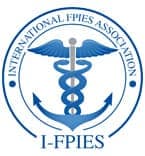 Based on clinical research, Neocate has shown to be successful in the management of a number of GI- and allergy-related conditions including:
Based on clinical research, Neocate has shown to be successful in the management of a number of GI- and allergy-related conditions including:
- Cow and soy milk allergies
- Multiple food protein intolerance
- Short Bowel Syndrome (SBS)
- Eosinophilic Esophagitis (EoE)
- Malabsorption
- Gastroesophageal reflux (GER)
- Other GI disorders
 We have blogged about each of these conditions, but one area we wanted to focus on was the “Other GI Disorders” section. Other GI disorders can include conditions such as Colic and Failure to Thrive.
We have blogged about each of these conditions, but one area we wanted to focus on was the “Other GI Disorders” section. Other GI disorders can include conditions such as Colic and Failure to Thrive.
One ‘other GI disorder’ that has been getting a bit more notice recently is a condition called Food Protein-Induced Enterocolitis Syndrome (or FPIES pronounced ‘F- pies’ for short). FPIES can be a serious condition if not managed properly. Unfortunately, many families still go a long time before they get an FPIES diagnosis. And that’s despite studies that suggest the prevalence of FPIES may be increasing. Also, efforts to help educate more healthcare professionals.
Management of FPIES is to avoid the offending protein (which is usually milk or soy) and supplement with a hypoallergenic formula, such as Neocate (if breast milk is not available).
There is a strong need for more healthcare professionals to be educated on this condition. Happily, there are doctors out there who are striving to do just that. The hope is to reduce prolonged suffering of patients, reduce hospital admissions, and to save money and time.
If your little one has FPIES, check out the International FPIES Association (I-FPIES). This can be a great forum to learn more and connect with other families managing FPIES.
Does your child have FPIES? What resources helped you to best manage the condition? We would love to hear so we can share with other families!
– Christine
PS. Feb 29, 2012 was Rare Disease Day! We would like to send a special recognition to those with rare diseases including FPIES.
References:
Last updated July 2020






